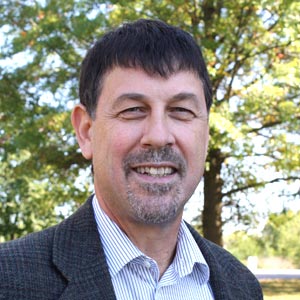
Racial justice and equality
by Clyde G. Kratz
Executive Conference Minister
The Conference Council of Virginia Mennonite Conference is forging ahead with a leadership initiative on racial justice and equality.
This leadership initiative emerged following the death of George Floyd and the subsequent and ongoing cultural awakening to the realities of systemic racism in American society and the church.
Alicia Manning, a member of C3 (formerly Calvary Community Church) led a facilitated conversation with non-White leaders to learn firsthand the challenges they face within our Conference. Elroy Miller, Moderator, Joe Longacher, Interim Chair of the Faith and Life Commission, and Clyde Kratz, Executive Conference Minister, were present in this conversation as listeners. As a result of this meeting, a letter was drafted to Conference Council highlighting significant concerns within our Conference that impact non-White brothers and sisters.
The apostle Paul writing to the Church at Ephesus recognized in Jesus that God was at work breaking down the walls of hostility between Jew and Gentile:
For he is our peace; in his flesh he has made both groups into one and has broken down the dividing wall, that is, the hostility between us. He has abolished the law with its commandments and ordinances, that he might create in himself one new humanity in place of the two, thus making peace, and might reconcile both groups to God in one body through the cross, thus putting to death that hostility through it. So he came and proclaimed peace to you who were far off and peace to those who were near; for through him both of us have access in one Spirit to the Father. So then you are no longer strangers and aliens, but you are citizens with the saints and also members of the household of God, built upon the foundation of the apostles and prophets, with Christ Jesus himself as the cornerstone. In him the whole structure is joined together and grows into a holy temple in the Lord; in whom you also are built together spiritually into a dwelling place for God (Ephesians 2:11-22).
Today, we are not fighting the battles of difference between Jew and Gentile, but we are being confronted by a similar problem, two different groups seeking to forge a new humanity whereby all people in the community find a safe space to thrive, flourish, and experience all that God intended for them. Virginia Mennonite Conference is seeking to forge a new way of being that honors all people, regardless of ethnicity in the household of God.
To move forward with this very necessary and timely agenda, Conference Council developed a response to the letter from non-White leaders and presented a direction to the Delegate Assembly on July 18, 2020, as a significant leadership strategy to be achieved. The letter to the delegates is as follows:
“The murder of George Floyd in Minnesota and similar racist acts have made us inescapably aware of the suffering, disadvantages, and oppression experienced by non-White citizens, which have always been there, but which the White establishment has chosen to ignore or overlook. Black Lives Matter and White Supremacy are more than slogans: They are realities we have overlooked for centuries. The findings of the Kerner Commission 52 years ago were clear, but no changes were made: “Our nation is moving toward two societies, one Black, one White—separate and unequal. What White Americans have never fully understood but what the Negro can never forget—is that White society is deeply implicated in the ghetto. White institutions created it, White institutions maintain it, and White society condones it.” Non-White persons have experienced racism through being treated as second class citizens, or non-citizens, in all areas of American life including education, housing, medical care, employment opportunities, and criminal justice. They are denied many freedoms White people take for granted, including freedom from fear.
Virginia Mennonite Conference, historically organized and led by Whites, is not free of blame. Despite a number of efforts as an organization, and some laudable individual attitudes and actions, we have too often been blind, insensitive, static and slow to act, thus contributing to racism through our policies, practices, and unwitting comments and actions. We have also been guilty of sins of omission—missed opportunities to say or do the right thing. We have failed to live out God’s vision of racial reconciliation in our life together and in our witness to the world. We must name and repent of the ways we have knowingly and unknowingly contributed to racism.
As leaders of Virginia Mennonite Conference who want to embody the Gospel vision of reconciliation, our hope needs to move beyond vision to specific anti-racist actions. We therefore pledge to work both institutionally and as individuals to right wrongs, commit to equality, and fulfill the Biblical mandate expressed in the words of the hymn based on Amos 5:24, “Let justice roll like a river, and wash all oppression away”. Our actions build upon and implement Goal 4 of the Strategic Plan in the process of being adopted by the Conference, which reads in part, “To hear the voices and welcome the leadership of people of color…”
The following actions were passed unanimously by Conference Council at its meeting on July 6, 2020. We were guided in our decision-making by input from a group of non-White leaders who had shared their concerns and suggestions during a meeting with three VMC leaders on June 19, 2020.
We are appointing a multi-racial Task Force, majority non-White, whose work will be facilitated by a consultant/expert experienced in racial sensitivity, racial consciousness, and anti-racism and inclusion. This group shall be tasked with the following:
- Assess VMC’s history concerning race relationships and provide a written report of their findings to Conference Council and the Delegate Assembly. There are stories of positive and negative actions by leaders and members concerning race relationships. These need to be heard. This may be where deep listening occurs by a group of people, but these stories can also be recorded and shared with our constituency.
- Make specific recommendations to Conference Council to eliminate racist language from Conference documents and policies at all levels of the organization.
- Provide advocacy to include non-White members on Conference planning committees on personnel selection for all committee appointments.
- Make recommendations concerning governance practice within VMC to incorporate non-White leaders.
- Facilitate training programs in racial sensitivity, racial consciousness, and anti-racism and inclusion for Conference Staff, Conference Council members, and members of the Congregational Life and Faith and Life Commissions.
- Require all key leaders of Conference, Conference Staff, and credentialed leaders to take the Intercultural Cultural Development Inventory
- Facilitate the development of a mandatory training program for all credentialed leaders in racial sensitivity, racial consciousness, and anti-racism and inclusion.
Ask each congregation to provide training on racial sensitivity, racial consciousness, anti-racism, and inclusion, using materials and training programs recommended by the Task Force.
A target date of September 30, 2020, is set to receive specific plans to carry out these activities.”
This leadership initiative is the beginning of our work on race relationships and equality. It is my desire to see this work begin and sustained over the next two years. I recognize that the work of race relationships is more than a two-year project, but this first step is our beginning point for significantly reforming our Conference to become more equitable to non-White participants in our Conference.
I remain open to hear from our constituency ways that can enhance our life together on matters of race relationships as this journey beings and is sustained throughout this next season of our life together.
